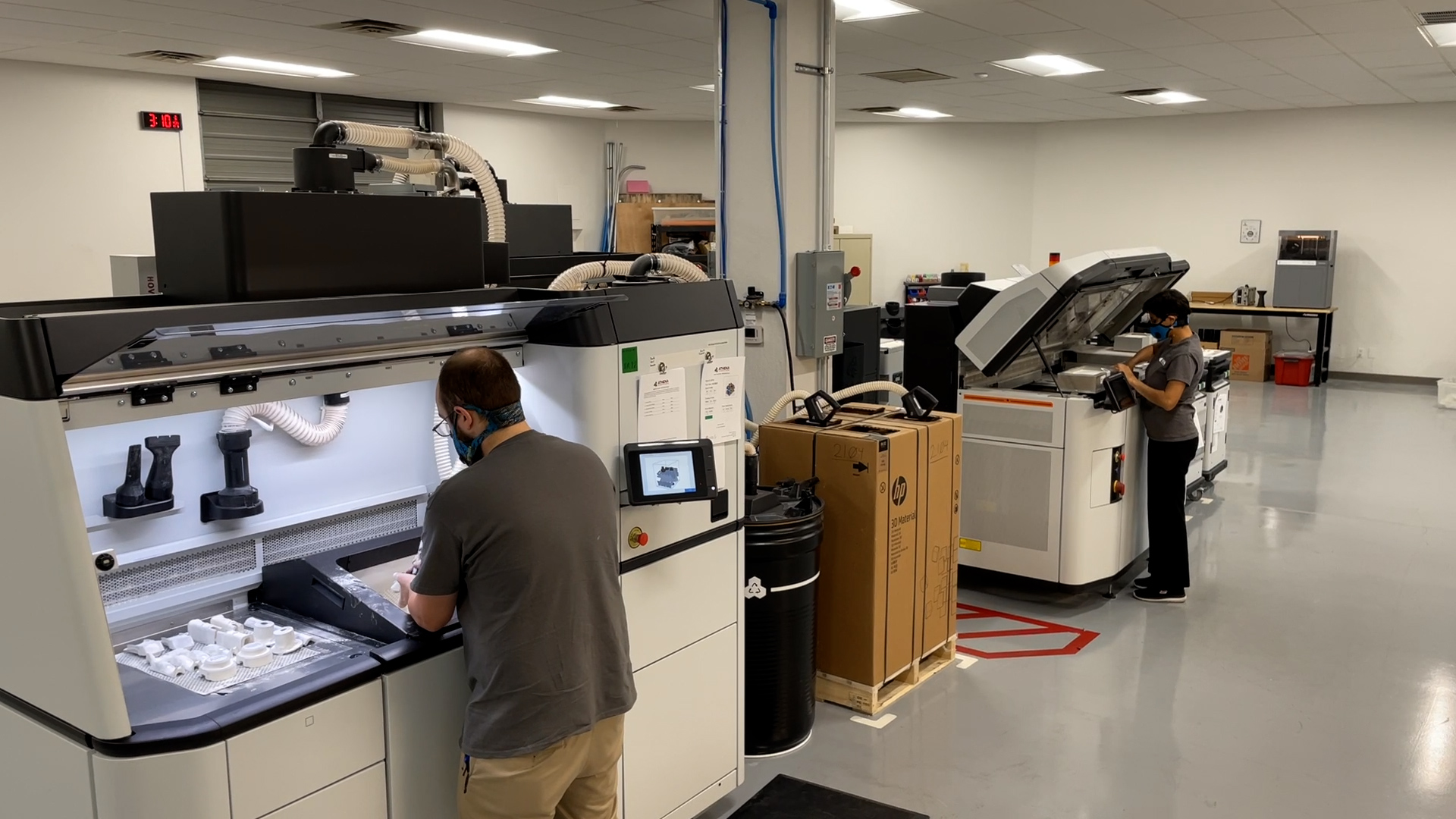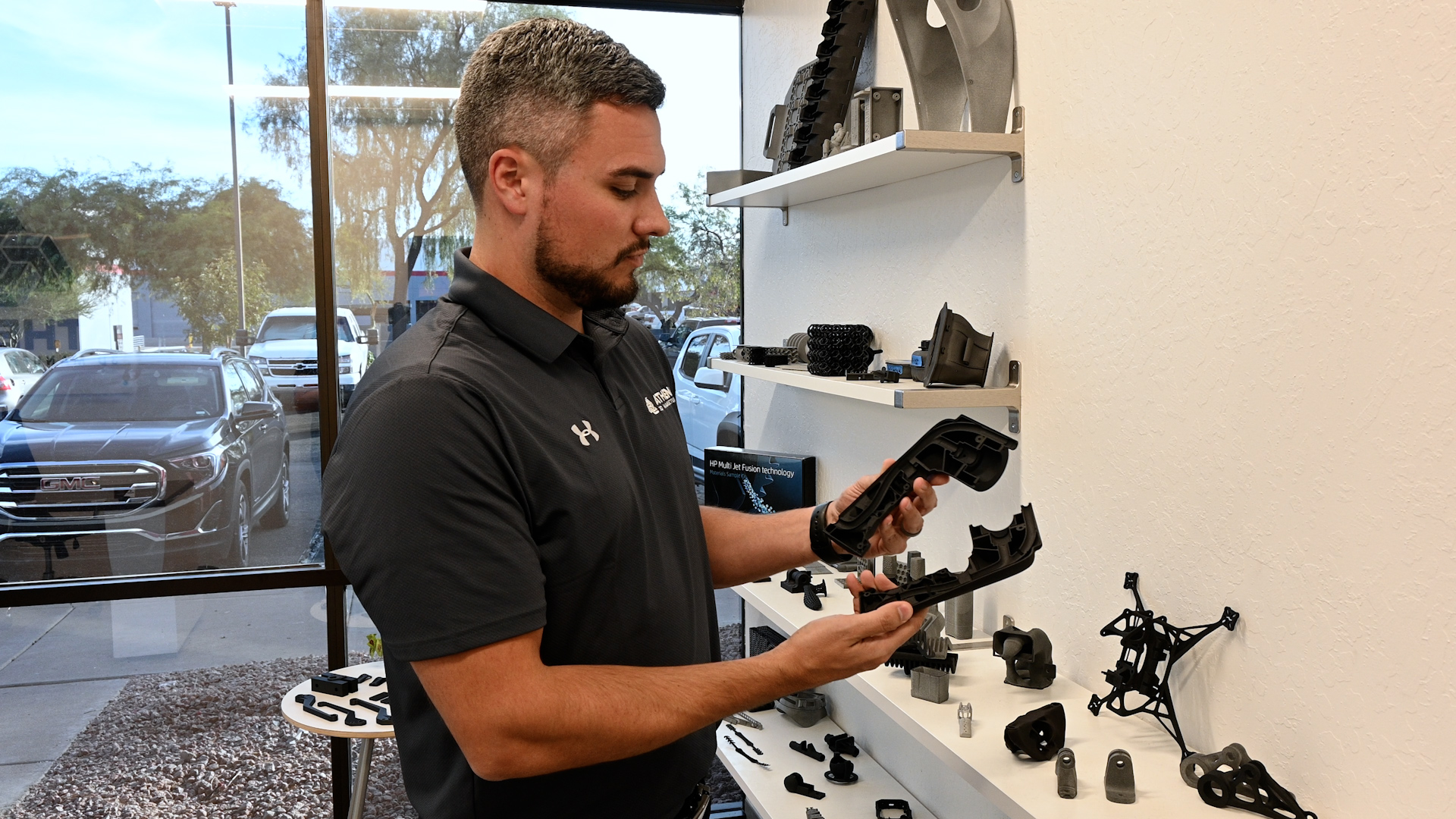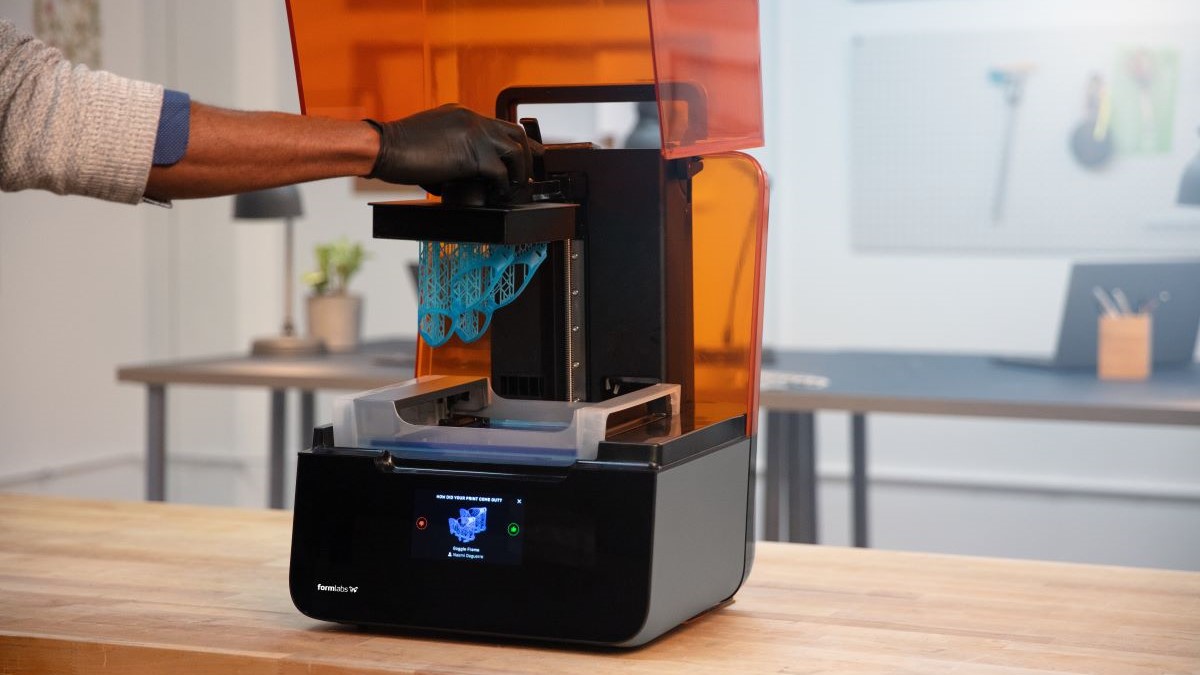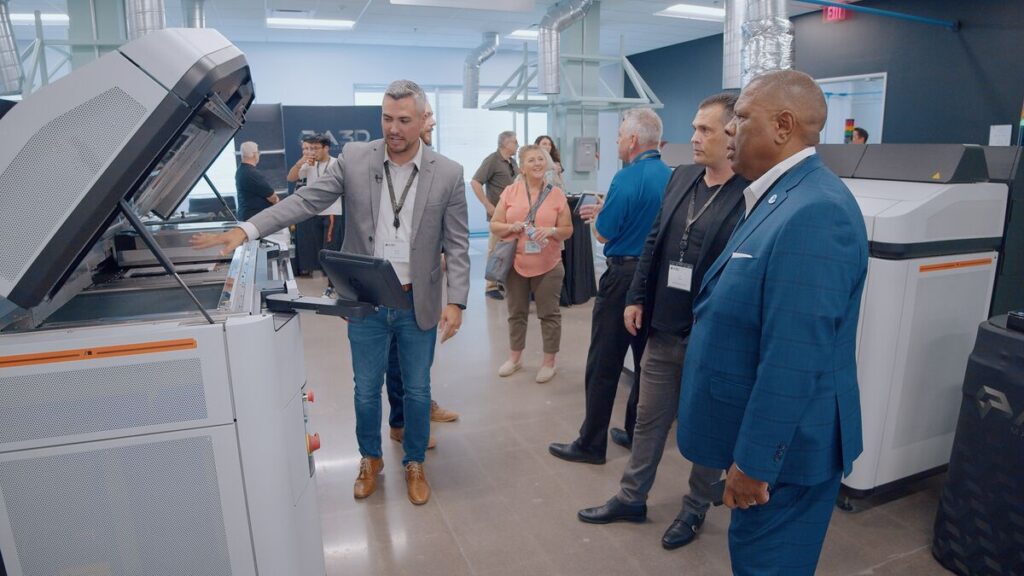
The AS9100 standard is a widely recognized quality management system (QMS) specifically designed for the aerospace and defense industries. It builds upon the ISO 9001 standard, adding additional requirements related to safety, reliability, and regulatory compliance that are critical for these sectors.
The standard ensures consistency in production, enhances risk management, and emphasizes continual improvement. By adhering to AS9100, companies can demonstrate their ability to meet stringent customer and regulatory requirements, which is essential for maintaining high levels of product quality and safety in aerospace and defense manufacturing.
And in addition, it’s mandated or required for specific government contracts in the United States to ensure national security is protected and that products created are safe and dependable.
AS9100: A Critical Certifications for Manufacturers in Aerospace and Defense
AS9100 certification is not just a requirement, it’s also a benefit for many companies. It offers several key benefits for manufacturing in the aerospace and defense sector:
- Enhanced Product Quality: The certification ensures strict adherence to quality management processes, leading to improved product consistency, safety, and reliability.
- Increased Market Access: AS9100 is often a mandatory requirement for suppliers in aerospace and defense, enabling certified companies to qualify for contracts and business opportunities with major OEMs and Tier 1 suppliers.
- Improved Risk Management: The standard focuses on risk-based thinking, helping manufacturers identify and mitigate risks earlier in the production process, reducing potential failures or defects in critical components.
- Operational Efficiency: AS9100 promotes continuous improvement in processes, leading to more efficient operations, reduced waste, and lower production costs, which is beneficial for both manufacturers and customers.
- Regulatory Compliance: Compliance with AS9100 helps companies meet the stringent regulatory and customer-specific requirements of the aerospace and defense industries, reducing the risk of non-conformities and ensuring legal adherence.
- Increased Customer Confidence: Certification demonstrates a commitment to high standards of quality and reliability, building trust and confidence with customers and partners in the highly demanding aerospace sector and mission-critical defense sector.
- Global Recognition: As a globally recognized standard, AS9100 certification enhances a company’s reputation and competitive edge, opening up opportunities in international markets.
What Is AS9100 and Why Is It Important?
AS9100 is a quality management system (QMS) standard tailored specifically for the aerospace, aviation, and defense industries.
It builds upon the ISO 9001 standard by adding industry-specific requirements that address the unique needs of aerospace manufacturers, suppliers, and service providers.
Its focus is to ensure the safety, reliability, and quality of aerospace products, meeting strict regulatory and customer demands.
What Are the Key Requirements of AS9100?
- Quality Management System (QMS): Organizations must establish, implement, and continually improve a documented QMS that meets AS9100 requirements. It should ensure consistent product quality and client satisfaction.
- Leadership Commitment: Senior management is required to demonstrate strong leadership, ensuring that quality objectives align with the organization’s strategic direction, and that adequate resources are provided.
- Risk Management: AS9100 emphasizes risk-based thinking throughout the organization, requiring the identification, assessment, and mitigation of risks that may impact product quality, safety, or customer satisfaction.
- Product Safety and Reliability: There is a strong focus on ensuring that products meet stringent safety and reliability standards. Processes must be in place to address product safety, from design to final delivery.
- Configuration Management: The standard requires a systematic process for maintaining product configuration throughout the lifecycle, ensuring that all product changes are controlled and documented.
- Supplier Management: AS9100 places significant emphasis on managing the quality of suppliers and external providers, ensuring they meet the same quality standards as the primary manufacturer.
- Product Traceability and Documentation: Organizations must establish robust traceability systems, especially for aerospace parts, so that the entire production process and any changes are well-documented and traceable.
- Non-Conformance Management: There must be processes for identifying, controlling, and addressing non-conforming products or processes, ensuring corrective actions are taken to prevent recurrence.
- Operational Control: Detailed operational planning and control measures must be in place to ensure that processes meet customer and regulatory requirements, including validation, verification, and monitoring of processes.
- Continual Improvement: Organizations are required to regularly monitor and measure the effectiveness of their QMS and continually improve processes, products, and services based on data analysis and customer feedback.
How AS9100 Expands on ISO 9001 & Addresses Industry-Specific Requirements
AS9100 builds upon the foundation of ISO 9001 by incorporating additional requirements that address the unique demands of the aerospace and defense industries.
While ISO 9001 provides a general framework for quality management across various industries, AS9100 tailors this framework to ensure that safety, reliability, and compliance are prioritized in the highly regulated and risk-sensitive aerospace and defense sectors.
Here’s how AS9100 specifically expands on ISO 9001:
1. Risk Management
ISO 9001 introduces risk-based thinking but focuses primarily on minimizing risks to quality.
AS9100 goes further by requiring comprehensive risk management processes, particularly concerning product safety and performance. It mandates the identification, evaluation, and mitigation of risks throughout the entire product lifecycle, from design to delivery, which is crucial in aerospace for safety reasons.
2. Product Safety and Reliability
ISO 9001 covers product quality but does not emphasize safety and reliability in the same detail.
AS9100 includes specific requirements for ensuring that aerospace products meet the highest standards of safety and reliability, given the severe consequences of product failure in aerospace applications. It ensures that all processes contributing to safety, from engineering to production, are carefully monitored and controlled.
3. Configuration Management
ISO 9001 has no explicit requirements for configuration management.
AS9100 requires a robust configuration management process to ensure that product design changes are controlled, tracked, and implemented properly. This is essential in aerospace where incorrect or unauthorized changes could compromise safety or compliance.
4. Supplier and External Provider Management
ISO 9001 covers supplier management but in a more general sense.
AS9100 places greater emphasis on controlling and monitoring suppliers, especially those providing critical components for aerospace products. It requires detailed evaluations, approvals, and continuous oversight of suppliers to ensure that they meet stringent aerospace quality standards, as poor supplier performance could directly impact product safety.
5. Product Traceability
ISO 9001 includes basic traceability requirements but does not make it a focal point.
AS9100 mandates strict product traceability throughout the entire production process. In aerospace, traceability is critical for ensuring that in the event of a defect, the origin and history of every component can be quickly identified, aiding in effective recalls or corrective actions.
6. Control of Special Processes
ISO 9001 does not explicitly focus on special processes.
AS9100 requires special attention to processes where the outcome cannot be fully verified through subsequent inspection or testing (such as welding or heat treating). These processes must be validated and controlled to ensure their continued ability to meet requirements, which is vital in aerospace manufacturing.
7. Non-Conformance and Corrective Actions
ISO 9001 addresses non-conformance but without industry-specific rigor.
AS9100 requires stricter processes for identifying, reporting, and controlling non-conforming products, as well as conducting root cause analysis and corrective actions. This is critical to maintain the integrity and safety of aerospace products.
8. Regulatory and Customer Requirements
ISO 9001 ensures that customer satisfaction and compliance with applicable regulations are part of the QMS.
AS9100 enhances this by adding industry-specific regulatory requirements, ensuring manufacturers meet the exacting standards of aerospace authorities like the FAA, EASA, and defense agencies. The certification also helps meet customer-specific requirements common in aerospace contracts.
9. Continual Improvement and Preventative Actions
ISO 9001 encourages continual improvement as a best practice.
AS9100 demands proactive approaches for identifying areas of improvement, including preventative actions to eliminate potential non-conformities, an essential practice in an industry where failures can have serious consequences.
10. Human Factors and Ethics
ISO 9001 doesn’t specifically address human factors or ethical conduct.
AS9100 includes requirements to consider human factors (e.g., human error in production) and emphasizes ethical behavior in aerospace processes, ensuring integrity throughout the production and supply chain.
Understanding the Different Stages of AS9100 & Their Implications
AS9100 certification typically comes in a single standard, but the process of achieving certification involves various levels or stages that organizations go through, each with specific implications for readiness, compliance, and overall maturity of the quality management system (QMS). Below is a breakdown of the different stages or levels associated with achieving and maintaining AS9100 certification:
1. Pre-Assessment or Gap Analysis (Optional)
Purpose: This is an optional preliminary assessment conducted by an external auditor or internally to determine how well the organization’s current practices align with AS9100 requirements.
Implications: The gap analysis helps identify areas needing improvement before the formal certification audit. It allows the organization to address shortcomings in its QMS, documentation, and procedures to avoid potential non-conformities during the formal audit.
2. Stage 1: Documentation Review (Readiness Assessment)
Purpose: This is the first official step in the AS9100 certification process. The certification body reviews the organization’s documented QMS, including quality manuals, procedures, and records, to ensure they meet the requirements of AS9100.
Implications: The outcome of this stage determines if the company is ready for the next stage. If gaps are found in documentation, the organization is given time to address them before moving to the full audit. This step is crucial for ensuring the organization’s processes are well-defined and meet AS9100 standards.
3. Stage 2: Certification Audit (On-site Assessment)
Purpose: The certification body conducts an on-site audit to assess the actual implementation of the AS9100 QMS in daily operations. Auditors evaluate the effectiveness of the QMS, processes, risk management, supplier control, and compliance with AS9100.
Implications: If the audit is successful, the organization is granted AS9100 certification. However, if non-conformities are found, the organization must address these before certification is granted. This audit ensures that the company’s QMS is not just documented, but also operational and effective.
4. Certification Decision
Purpose: After the audit, the certification body reviews the audit findings and determines if the organization meets the requirements for AS9100 certification.
Implications: Upon successful completion, the organization is granted an AS9100 certification. This certification is valid for three years, during which the company must maintain compliance and undergo regular surveillance audits.
5. Surveillance Audits (Maintenance Audits)
Purpose: These are periodic audits conducted by the certification body, typically annually, to ensure the organization continues to comply with AS9100 requirements.
Implications: Surveillance audits help organizations maintain their certification by ensuring that quality processes are sustained, and improvements are made where necessary. Failure to comply during these audits could lead to suspension or withdrawal of certification.
6. Recertification Audit
Purpose: After three years, organizations must undergo a full recertification audit to maintain their AS9100 certification. This process is similar to the initial certification audit but also takes into account the organization’s performance during the certification period.
Implications: Successful recertification ensures that the organization remains AS9100-certified for another three-year period. If the organization fails to meet requirements, they risk losing certification, which could impact their eligibility for aerospace contracts.
Implications of AS9100 Certification Levels:
- Initial Certification: Achieving certification demonstrates that an organization’s QMS meets the stringent requirements of the aerospace and defense industries. It signals readiness to do business with aerospace manufacturers and Tier 1 suppliers.
- Surveillance Audits: These ensure ongoing compliance and encourage continuous improvement in operations. Successful surveillance audits keep the certification active and signal to customers that the company is committed to maintaining high standards.
- Recertification: Ensures long-term compliance and adaptability to evolving industry requirements. Companies that consistently maintain their certification gain a reputation for reliability and quality, which is critical in the aerospace sector.
What Are the Key Benefits of Working with a Manufacturer that Is AS9100 Certified?
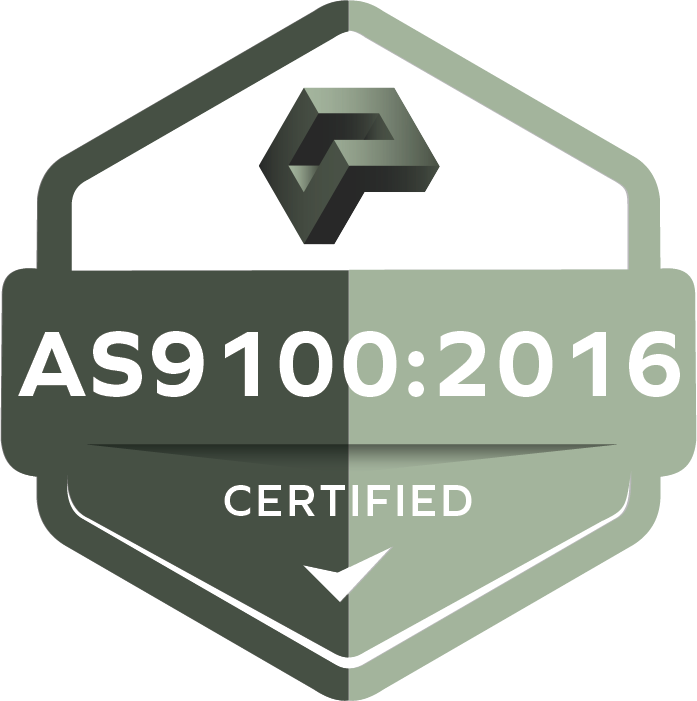
Here are just a few of the benefits of working with an AS9100-certified manufacturing as a service company like A3D Manufacturing:
-
- Improved quality and safety of products and services
-
- Enhanced customer satisfaction and trust
-
- Increased operational efficiency and productivity
-
- Reduced costs and waste
-
- Gaining a competitive edge in the marketplace
-
- Meeting regulatory requirements and industry standards
Let’s dive deeper into these benefits.
In today’s highly competitive aerospace and defense industries, quality, safety, and compliance are non-negotiable.
As a result, manufacturers are increasingly required to meet stringent standards to ensure they deliver reliable, high-performance products. One of the most recognized certifications in these sectors is AS9100, a quality management system (QMS) standard tailored specifically for the aerospace, aviation, and defense industries.
Choosing to work with a manufacturer that is AS9100 certified offers several significant advantages for businesses looking to optimize their supply chain and ensure top-tier products.
1. Improved Quality and Safety of Products and Services
AS9100 places a strong emphasis on product quality and safety, which are critical in aerospace and defense applications. Certified manufacturers are required to follow strict processes that ensure every component, assembly, and finished product meets the highest quality and safety standards.
For customers, this means reduced risks of product failure and improved reliability. Whether it’s a highly specialized aerospace component or a complex defense system, the rigorous testing, inspection, and verification processes embedded in an AS9100-compliant QMS result in superior quality.
When safety is paramount, AS9100 certification gives customers confidence that the manufacturer is capable of meeting the exacting demands of the industry.
2. Enhanced Customer Satisfaction and Trust
Trust is the cornerstone of any successful business relationship, especially in sectors where precision and reliability are key. Manufacturers that achieve AS9100 certification demonstrate their commitment to consistently delivering high-quality products and services.
Customers working with an AS9100-certified manufacturer can be confident that their needs will be met, and often exceeded, thanks to the manufacturer’s focus on continuous improvement and responsiveness to customer feedback.
This enhances long-term customer satisfaction, leading to stronger partnerships, reduced risk of disputes, and higher levels of repeat business. Additionally, being associated with a certified supplier can bolster a customer’s own reputation within the industry.
3. Increased Operational Efficiency and Productivity
The AS9100 standard is designed to streamline processes and optimize efficiency. By adhering to its guidelines, manufacturers implement well-defined and controlled workflows, reducing errors, redundancies, and delays in production.
These process improvements lead to greater productivity, as manufacturers can produce high-quality products faster and more reliably. For customers, this translates into shorter lead times, fewer delays, and added confidence that their supplier has the capacity to meet demand even in challenging circumstances.
4. Reduced Costs and Waste
AS9100 certification also promotes lean manufacturing principles and focuses on reducing waste in all forms, whether it’s materials, time, or resources.
By emphasizing continual improvement and risk management, certified manufacturers are better equipped to minimize costly errors, rework, and non-conformance issues.
This reduction in waste not only lowers production costs but also helps manufacturers offer more competitive pricing to their customers. Additionally, by preventing defects and ensuring proper documentation, customers save money by avoiding costly recalls, warranty claims, or product failures.
5. Gaining a Competitive Edge in the Marketplace
In the aerospace and defense sectors, AS9100 certification is often a prerequisite for doing business with top-tier clients and government agencies. Manufacturers that achieve this certification are automatically placed in a more favorable position when bidding for contracts or entering new markets.
Working with an AS9100-certified manufacturer provides customers with a competitive advantage as well. They gain access to a supply chain partner that meets the industry’s highest standards, which can improve their own reputation, product offerings, and ability to win critical contracts.
Moreover, because the certification is globally recognized, working with certified manufacturers can open doors to international opportunities.
6. Meeting Regulatory Requirements and Industry Standards
The aerospace and defense industries are among the most regulated sectors in the world, with complex requirements related to safety, traceability, and compliance.
AS9100 certification ensures that manufacturers meet these strict regulatory demands by requiring them to implement rigorous documentation, risk management, and quality control processes.
By working with a certified manufacturer, customers can be assured that their products will comply with all necessary industry regulations, including those set by authorities like the Federal Aviation Administration (FAA), the European Union Aviation Safety Agency (EASA), and defense-specific regulations. This reduces the risk of compliance issues, delays, or penalties, giving customers peace of mind that their projects are in capable hands.
Partnering with an AS9100-certified manufacturer offers a wide range of benefits for businesses operating in the aerospace and defense sectors. From improved product quality and safety to enhanced operational efficiency and cost savings, AS9100 certification is a mark of a manufacturer’s commitment to excellence and industry leadership.
By working with such a supplier, businesses can strengthen their supply chain, gain a competitive edge, and ensure compliance with critical industry standards.
In a world where precision, safety, and reliability are essential, AS9100 certification represents a strategic advantage that helps both manufacturers and their customers succeed.
How A3D Manufacturing Can Help
At A3D Manufacturing, we pride ourselves on being one of the few manufacturing companies that hold the AS9100 certification, demonstrating our commitment to the highest standards of quality and safety in the aerospace and defense sectors.
This prestigious certification reflects our ability to meet the rigorous demands of these industries, from managing complex projects to ensuring full compliance with industry regulations and standards.
Comprehensive Manufacturing Services for Aerospace & Defense
Our AS9100 certification is just one part of the equation. A3D Manufacturing offers a wide range of manufacturing services designed to meet the unique needs of the aerospace and defense industries.
Whether you’re looking for precision CNC machining, advanced 3D printing, or full-scale production, we have the expertise and state-of-the-art technology to deliver high-quality components that meet the most stringent specifications.
Our services are geared towards ensuring not just quality, but also efficiency and scalability. From initial design and prototyping to full production and post-production inspection, A3D Manufacturing can support the entire lifecycle of your project, helping you get to market faster with reliable products.
Industry-Specific Expertise and Projects
Over the years, A3D Manufacturing has worked on several aerospace and defense-specific projects, collaborating with key industry players and government agencies.
Our expertise ranges from producing aerospace components that require precision and safety to defense applications where durability and compliance are paramount.
Some of our notable projects have required the need to meet traceability requirements and adhere to stringent quality standards. We’ve also worked on prototyping advanced parts for aerospace systems, leveraging our high-end 3D printing capabilities to deliver innovative solutions with reduced lead times.
By working with A3D Manufacturing, our customers benefit from our deep understanding of the industry’s needs, backed by our AS9100 and ISO9001:2015 certifications, which assures the highest levels of quality, traceability, and risk management.
Partner with A3D Manufacturing
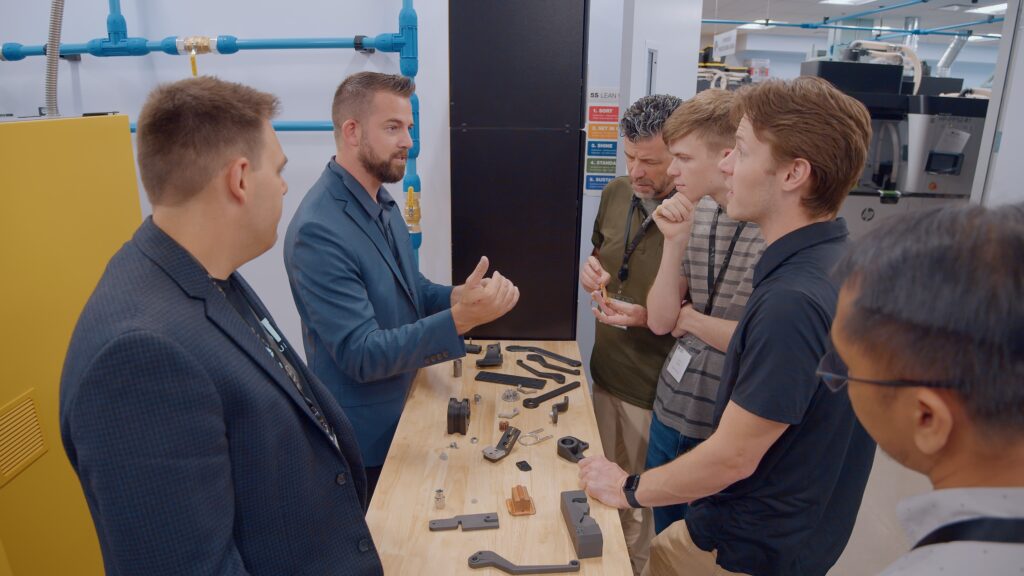
If you’re looking for a trusted partner to support your aerospace or defense project, look no further than A3D Manufacturing. With our AS9100 certification and comprehensive range of services, we are well-equipped to take on your most challenging projects.
Get a quote today or book a call with our team to discuss your needs. Whether you’re working on a prototype or full-scale production, we’re here to help you succeed in the competitive aerospace and defense markets.
Let’s bring your vision to life with the confidence that comes from partnering with a certified, industry-leading manufacturer.


